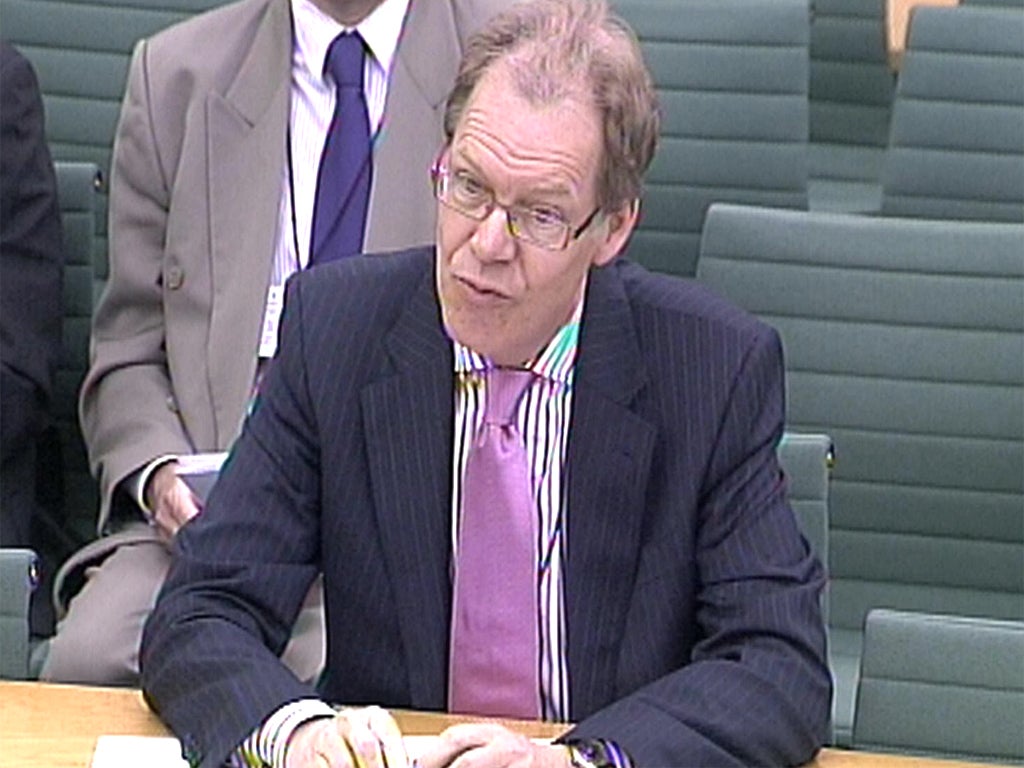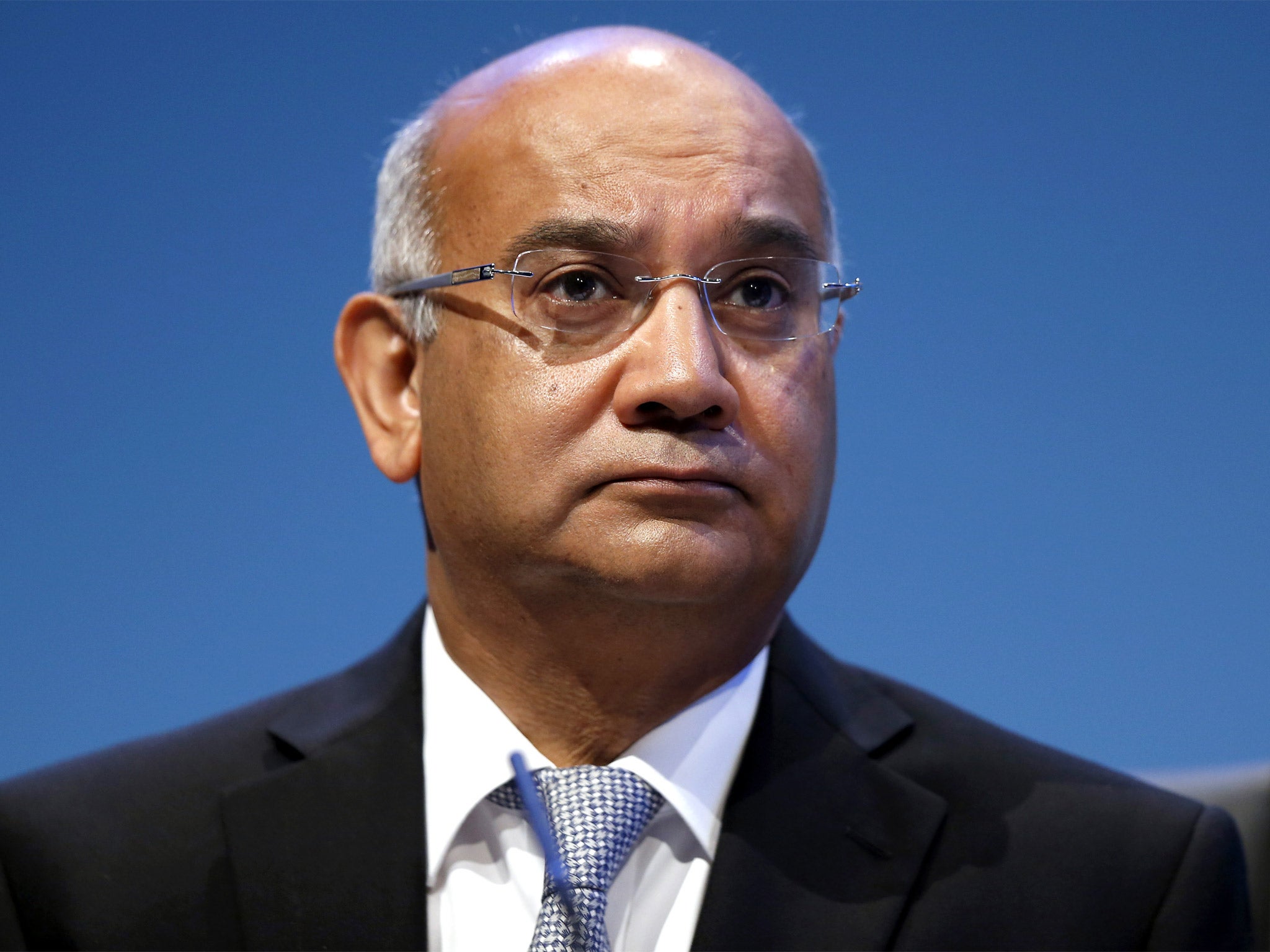New ‘blue-chip hacking’ cover‑up feared as fresh details emerge
Information Commissioner officials previously worked closely with Soca on investigating rogue private detectives

Your support helps us to tell the story
From reproductive rights to climate change to Big Tech, The Independent is on the ground when the story is developing. Whether it's investigating the financials of Elon Musk's pro-Trump PAC or producing our latest documentary, 'The A Word', which shines a light on the American women fighting for reproductive rights, we know how important it is to parse out the facts from the messaging.
At such a critical moment in US history, we need reporters on the ground. Your donation allows us to keep sending journalists to speak to both sides of the story.
The Independent is trusted by Americans across the entire political spectrum. And unlike many other quality news outlets, we choose not to lock Americans out of our reporting and analysis with paywalls. We believe quality journalism should be available to everyone, paid for by those who can afford it.
Your support makes all the difference.Fears of a new “blue-chip hacking” cover-up were mounting tonight after it emerged that the body brought in to investigate evidence that was suppressed for years by the Serious Organised Crime Agency (Soca) was itself involved in the discredited original inquiry.
Officials from the Information Commissioner’s Office (ICO) worked closely with Soca throughout Operation Millipede, a four-year investigation that uncovered a gang of rogue private detectives who hacked, blagged and stole sensitive information on members of the public.
Soca was lambasted last year after The Independent revealed that the agency had failed for years to investigate some of Britain’s leading companies, including banks, law firms and accountancy giants, who were found to have employed the rogue private investigators and fuelled the unlawful trade in personal data.
The four private detectives were jailed for minor offences in 2012, but the organisations that hired them escaped scrutiny until The Independent’s disclosures.
At the height of the melee last year, the names of 102 “blue-chip” PI clients were about to be published by the Home Affairs Select Committee until the intervention of the Information Commissioner, Christopher Graham, who was handed 30 files of historic material seized years earlier by Soca and pledged to conduct a thorough investigation. More than a year later, no arrests have been publicised and the ICO has repeatedly refused to discuss its inquiry, code-named Operation Spruce.
The Independent has been told that investigators from the ICO were intimately involved at every stage of the original Soca probe, raising questions over the impartiality of their new investigation.
ICO investigators were involved in pre-arrest briefings, attended searches of the suspects’ homes and one member of staff even gave evidence in court during the original prosecution of the private investigators, who were convicted of conspiracy to defraud.
Keith Vaz, chairman of the Home Affairs Select Committee, said: “I am deeply concerned at the suggestion that anyone from the Information Commissioner’s office was involved in the original inquiry by the Serious Organised Crime Agency, particularly as this was not disclosed to the committee during the extensive hearings on this subject last year.” He also repeated his concerns that Operation Spruce is using investigators from the National Crime Agency – which is in large part made up from staff who used to work at Soca.

Mr Vaz added: “I would be very surprised if anyone from the NCA who worked on Operation Millipede is now investigating this for the ICO as that would be a clear conflict of interest.
“I will be writing to Mr Graham to clarify what the ICO’s historic involvement was in this case and to seek an update on Operation Spruce, which has been under way for more than a year.”
The list of blue-chip PI clients classified by Soca and handed to MPs last year reportedly include The X Factor mogul Simon Cowell, accountancy firm Deloitte, the banks Credit Suisse and Chase Manhattan, and the law firms Richards Butler (now Reed Smith), Herbert Smith Freehills and Clyde and Co.
There is no suggestion they knew that the private detectives they employed may have been breaking the law.
The case raised accusations of double standards at a time when the press is at the centre of the largest criminal investigation in British history over practices which include the hiring of corrupt private eyes.
An ICO spokesman said it did not have a “significant” role in the original Operational Millipede and had informed the Home Affairs Select Committee of its role more than two years ago. “Our input was largely limited to sharing our expertise on the Data Protection Act. Our own investigation into alleged data-protection offences committed by corporate clients suspected of using the services of rogue private investigators began in August 2013. We have already uncovered evidence of apparent criminal breaches of the Data Protection Act, and the investigation continues to progress.”
Timeline
22 June 2013 The Independent reveals Soca sat for years on evidence that some of Britain’s most respected companies hired rogue private eyes.
18 July 2013 The Independent reveals Soca had declared the clients should not be identified because it would damage their commercial interests.
22 July 2013 The Independent reveals Sir Ian Andrews, then Soca chair, failed to declare he had a management consultancy with his wife.
24 July 2013 Soca passes a list of 102 blue-chip clients of the PIs to the Home Affairs Select Committee, but classifies the information to save companies being “tainted with public association with criminality”.
1 August 2013 Sir Ian resigns.
31 August 2013 Soca finally hands the historic evidence on 98 blue-chip clients to the Information Commissioner to investigate.